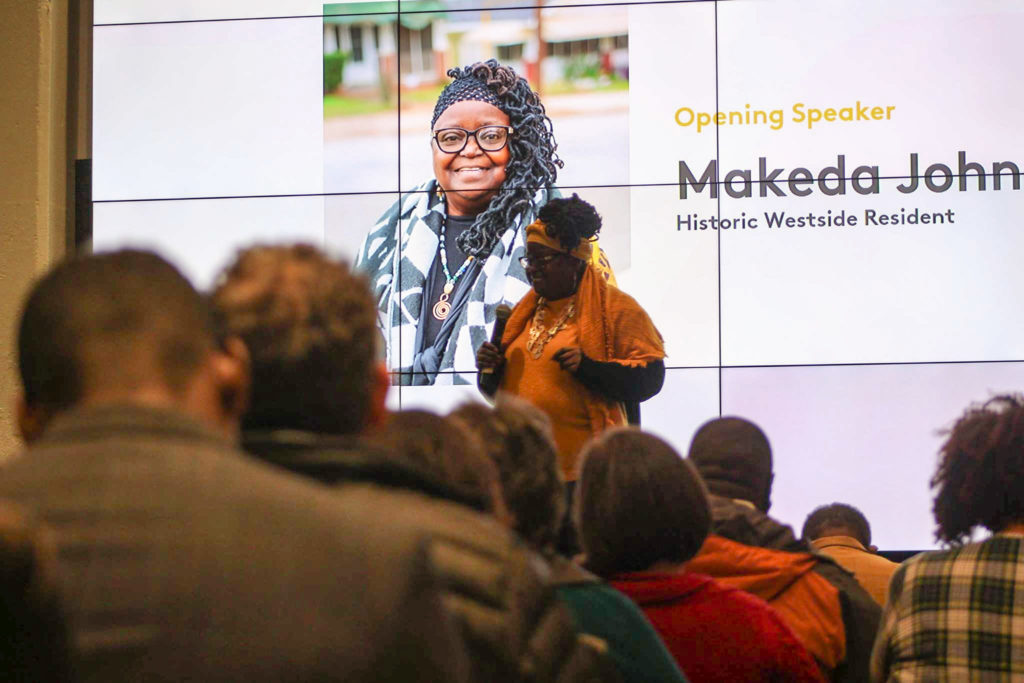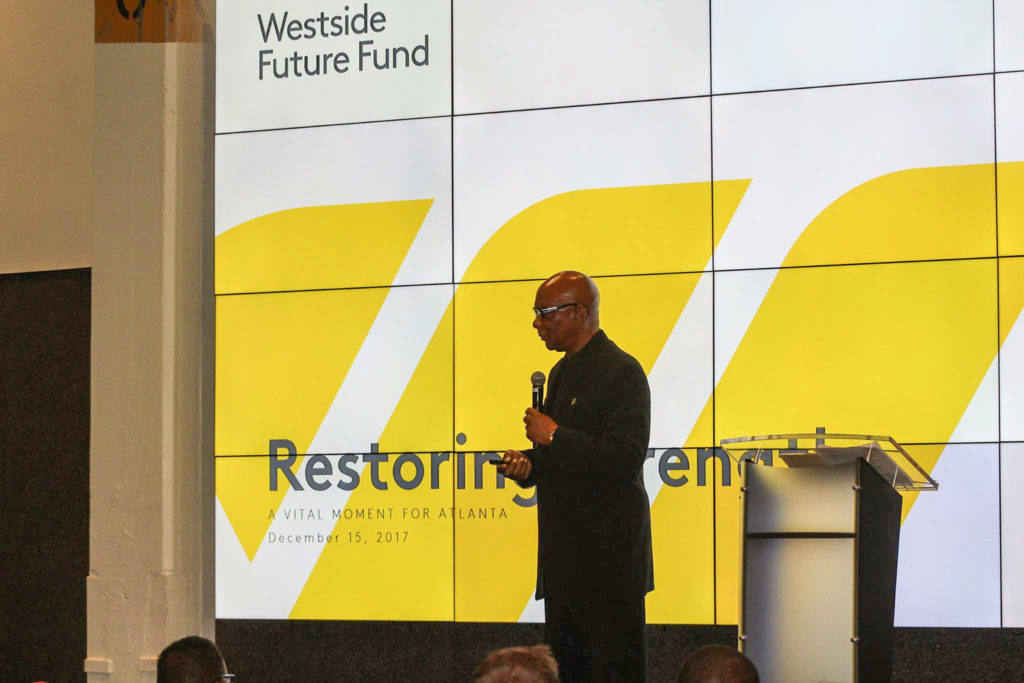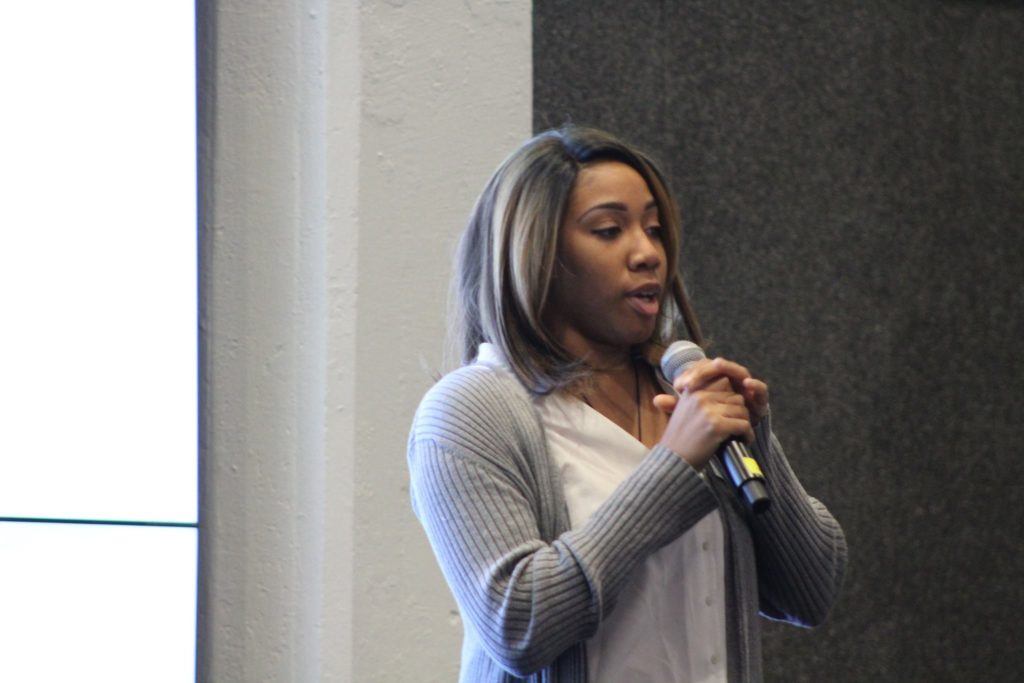Dec. 15 Summit Recap: Westside Community Retention Collaborative
December 15th marked the 24th and final Transform Westside Summit of 2017, which served as both a moment to take in progress that had been made the past year, as well as a time to reaffirm a commitment to the beloved Westside communities.

Welcoming remarks were given by WFF Executive Director John Ahmann, followed by Historic Westside resident Makeda Johnson and the subsequent featured presentation, “Community Retention Collaborative Update,” which featured remarks from Jesse Wiles of APD Urban Planning and Development. As the title suggests, this presentation provided an opportunity to highlight the efforts of community stakeholders and give a snapshot of progress over the past year.

Wiles (pictured above) highlighted some of the key concerns confronting Westside neighborhoods, particularly the displacement of long-term residents, limited access to affordable housing and the prevalence of short-term leases for business owners. He described the process by which leaders in the public and private sector engaged in lengthy dialogue with community residents and researched models of success from other cities to develop a roadmap for positive change.
Some of the solutions to address challenges on the Westside included paying for escalating property taxes for current homeowners, transitioning more renters to homeowners, increasing the supply of affordable housing units and facilitating more emergency housing. Critical to these efforts, Wiles mentioned, was the creation of the Anti-Displacement Tax Fund, a $5 million effort reflecting the collaboration of private and philanthropic donors meant to help existing homeowners stay in the neighborhood.
Following Wiles’ presentation, Ahmann took the stage to provide further context for the work of the Westside Future Fund and how the projected population changes in the city of Atlanta are likely to affect its efforts.
With the city’s population projected to increase to more than 1.2 million residents in the next 30 years, Ahmann stressed how critical it will be to lay the foundation for creating vibrant, mixed-income neighborhoods where legacy residents can stay and maintain their sense of community. However, despite these efforts, one of the biggest challenges the WFF has experienced has been in reaching and signing up more community members for the available resources.
To that end, Historic Westside Community Resident Lyric McGhee (pictured below) shared some of the past and ongoing outreach efforts to make sure that long-term homeowners—particularly seniors—were up to date on all the available information.

McGhee stressed that future efforts will be aimed at more resident participation at upcoming Summits, as well as possible efforts to reach members of the community in conjunction with public transit and public retail spaces.
In closing, Ahmann detailed Westside Future Fund’s plans for the upcoming year and some of the critical public/philanthropic partnerships involved in its community retention efforts, which include raising more resources to support existing homeowners and buying property to facilitate future affordable housing needs.
To view the full Summit presentation, click here. To view the Summit photo gallery, click here.
Additional Summit Highlights:
- Morning Devotion: Makeda Johnson, Community Resident
- Summit Attendee Self-Introductions
- Westside Future Fund Overview and Community Announcements:
- Coat and Blanket Drive
- Westside Volunteer Corps: January Day of Service
- Historic Westside Pledge Campaign
- Home Depot Foundation Resident Gift Card Giveaway
Don’t want to miss our next Transform Westside Summit? Register now!
